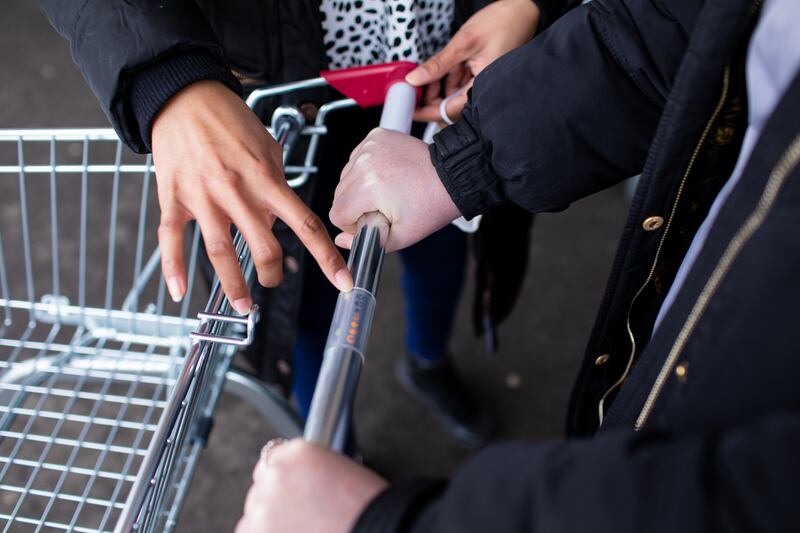UK scientists are installing sensors on supermarket trolleys to help identify those at the risk of stroke as part of a new study.
Researchers from Liverpool John Moores University are in the process of recruiting up to 2,000 people who will be using the trolleys while shopping at Sainsbury’s or Lloyds Pharmacy.
The sensors are designed to pick up pick up irregular heartbeat which leads to a condition known as atrial fibrillation.
It is estimated around 1.2 million people in the UK have atrial fibrillation, which can cause blood clots to form in the heart and increase risk of stroke.
Ian Jones, professor of cardiovascular nursing at Liverpool John Moores University, who is leading the study, told the PA news agency: “Around 30,000 people suffer a stroke each year as a consequence of a treatable, but often undiagnosed, irregular heartbeat.
“Using proven sensor technology, we are intending to check peoples heartbeat while they shop, and in doing so, we estimate that we will save between 20 and 40 people suffering a stroke in the future.”

Prof Jones said a simple pulse check can identify those with atrial fibrillation but that relies on patients noticing something unusual about their heartbeat and attending a GP surgery for assessment.
There are wearable devices that can also spot irregular heartbeat but this would also require people to take responsibility and wear the device.
Prof Jones told PA: “The problem is there are many people who are living with atrial fibrillation and are completely oblivious to this fact.
“So we wanted to explore whether people would actually use the trolley if we put a sensor in it – with people going about their shopping and no action required.”
As part of the study, the recruits will have to place their hands on the trolley handle with embedded sensors for at least 20 to 30 seconds for their heartbeat to be detected.
The data gathered from the sensors will then be analysed by a team of experts.
The participants who are identified as having irregular heartbeat will be referred to a consultant cardiologist who specialises in atrial fibrillation.

The patients will then be assessed and given medication if they are at risk of stroke, or otherwise get appropriate lifestyle advice.
Prof Jones told PA: “This is a feasibility study so there are some things we will learn along the way.
“We are embedding sensors in the handles of supermarket trolleys to detect an irregular heart beat.
“This particular abnormality is linked to stroke so we are hoping to identify people early and stop them developing a stroke.
“As a concept, this has the potential to save thousands of lives.”
The trials are taking place at Sainsbury’s and Lloyds Pharmacy stores in Rice Lane, Liverpool and Upton Bypass, Wirral, in May.
The team will then move to stores in East Prescott Rd and James Rd in Liverpool in June and July to continue with the research.








